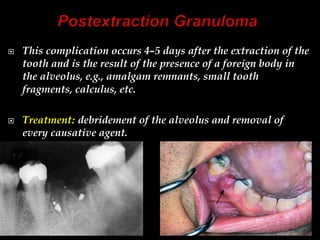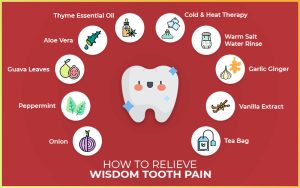Introduction
Having a tooth extraction is a common dental procedure that many people undergo at some point in their lives. While the majority of extractions go smoothly and without any complications, there are instances where complications may arise. It is important to be aware of these potential complications and know when to seek immediate dental attention. In this blog post, we will discuss some common complications that can occur after a tooth extraction and provide guidance on when it is necessary to call your dentist.
Dry Socket: A Common Complication
After a tooth extraction, it is common to experience some discomfort and pain. However, if the pain worsens after a few days instead of improving, you may be dealing with a condition called dry socket. This occurs when the blood clot that forms in the socket after extraction becomes dislodged or dissolves prematurely.
Symptoms of Dry Socket
Some common symptoms of dry socket include:
- Severe pain that radiates to the ear and neck
- Bad breath or foul taste in the mouth
- Visible bone in the socket
When to Call Your Dentist
If you suspect you have a dry socket, it is crucial to contact your dentist immediately. They will be able to provide the necessary treatment, which may involve cleaning the socket, applying a medicated dressing, and prescribing pain medication.
Infection: A Serious Concern

Another complication that can arise after a tooth extraction is an infection. This occurs when bacteria enter the extraction site, leading to inflammation and potential complications.
Signs of Infection
Look out for the following signs of infection:
- Increased pain and swelling that does not subside
- Redness and warmth around the extraction site
- Pus or discharge from the socket
When to Call Your Dentist
If you suspect an infection, it is crucial to contact your dentist immediately. They will evaluate the situation and may prescribe antibiotics to eliminate the infection. Delaying treatment can lead to more severe complications.
Excessive Bleeding: A Cause for Concern
While some bleeding is normal after a tooth extraction, excessive bleeding can be a cause for concern. If the bleeding does not subside or becomes uncontrollable, it is essential to seek immediate dental attention.
Summary
After a tooth extraction, it is normal to experience some discomfort and swelling in the area. However, if you notice any severe or persistent pain, excessive bleeding, or signs of infection such as fever or pus, it is crucial to contact your dentist right away. Other complications that may require immediate attention include dry socket, nerve damage, and sinus problems. By being aware of these p you can look here otential complications and knowing when to seek professional help, you can ensure a smooth recovery process and prevent any further complications.
- Q: What are some common complications after tooth extraction?
- A: Common complications after tooth extraction include bleeding, swelling, pain, infection, dry socket, and nerve damage.
- Q: How much bleeding is normal after tooth extraction?
- A: Some bleeding is normal after tooth extraction. However, if the bleeding is excessive or doesn’t stop after a few hours, it is advisable to contact your dentist.
- Q: How long does swelling last after tooth extraction?
- A: Swelling after tooth extraction typically peaks around the second or third day and gradually subsides within a week. If the swelling worsens or persists for an extended period, it is recommended to consult your dentist.
- Q: What can I do to manage pain after tooth extraction?
- A: To manage pain after tooth extraction, you can take over-the-counter pain medications as prescribed by your dentist. Applying an ice pack to the affected area and avoiding strenuous activities can also help alleviate discomfort.
- Q: How do I know if I have an infection after tooth extraction?
- A: Signs of infection after tooth extraction may include severe pain, persistent swelling, foul odor or taste, pus discharge, and fever. If you experience any of these symptoms, it is important to contact your dentist promptly.
- Q: What is dry socket and how is it treated?
- A: Dry socket occurs when the blood clot that normally forms after tooth extraction becomes dislodged or dissolves, exposing the underlying bone. It can cause severe pain. Your dentist can provide a dressing or medication to alleviate the discomfort and promote healing.
- Q: When should I be concerned about nerve damage after tooth extraction?
- A: If you experience numbness, tingling, or loss of sensation in your tongue, lips, chin, or other areas of your mouth and face that persists beyond a few days, it is advisable to contact your dentist for further evaluation.

Welcome to my website! My name is Dylan Boake, and I am a dedicated and passionate Dental Assistant with years of experience in the field. I am thrilled to share my knowledge and expertise in dental nutrition, oral health care, tooth extraction, and dental associations with you.


